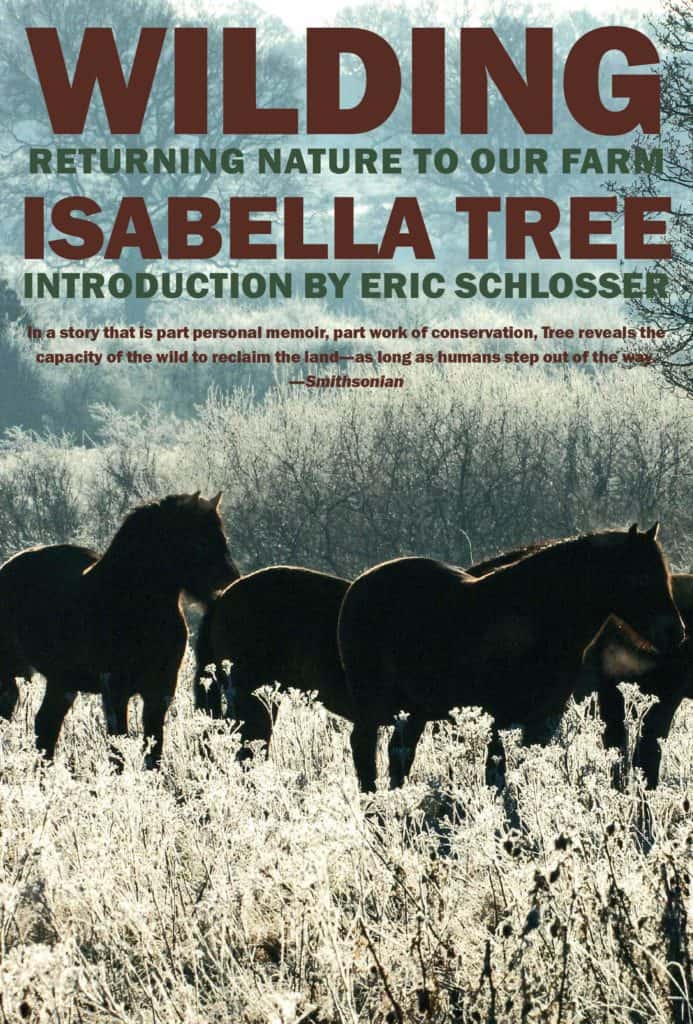Tree Talk
By Gary Salmon
One is a novel and the other a “how to book” detailing nature restoration, both serving to the reader an unforgettable message.
Richard Powers’ powerful novel “The Overstory” reveals much of the ugly history of tree management in this country. Nearly a dozen characters are developed in “The Overstory” and through their narrative a story is weaved about how a specific tree or forest influenced their lives for the better and how their resulting dedication has helped develop our public narrative about trees and forests and the relationship to our lives.

“Wilding: Returning Nature to Our Farm” by Isabella Tree traces the history of Knepp Castle, which started in the 12th century and by the 20th century had become a 3,500 acre estate faced with bankruptcy.
It’s all there in “The Overstory” — what we have done as a nation to separate ourselves from the world we live in. But as each character is separated from a comfortable existence so too are the trees in their lives. A chestnut, a mulberry, a black walnut, an old growth forest and many other tree examples are indirectly responsible for their return to the human condition as they each see the relationship of the natural world to human life, for better or for worse. But it is not all bad. Much of the book details the efforts of these imperfect humans to correct the flaws in our relationship to trees and forests. Through activism and resistance public concern for the non-human world we live in is brought to the forefront. As the book jacket says: “There is a world alongside ours — vast, slow, interconnected, resourceful, magnificently inventive, and almost invisible to us. This is the story of a handful of people who learn to see that world and who are drawn up into its unfolding catastrophe.”
The good is found in “Wilding,” centered around the Knepp Castle Estate, an old English castle in West Sussex on the English Channel and south of London. Both owners, Isabella Tree and husband Charlie Burrell, inherited several hundred years of land changes in England. It’s true that old oak forests still lived on the grounds but the impact of very large scale farming during WWII (England turned every available acre into crop production to feed a population at war), was followed by government price support of agricultural and dairy products which pretty well guaranteed an estate severely damaged by soil changes. Fertilizer and pesticide applications, repeated ploughing which removed soil structure plus the earthworms within the soil, larger and larger farm machinery use, all combined to deplete the most valuable of the estate’s resources — its soil. Added to that were the decline of the scattered old oaks, some dating back to when the land was a deer park and the oaks were the shelter centuries ago.
It was concern for oak health combined with potential bankruptcy (intensive farming no longer provided sustainable income) that forced the owners to think out-of-the-box and consider letting the soil and land above it to return to a natural state in 2001. With an incredible amount of scientific help, lots of grants from conservation organizations, a sound business plan, and continued monitoring of changes over time at all levels of life, the book covers in detail the wilding of Knepp Castle estate over the next 17 years. Wilding defines a “deeper nature which holds the key to our future, not only in terms of mental and psychological health but in services vital to our long- term prosperity and survival — like the protection of watersheds, water and air decontamination, flood mitigation, soil restoration, the provision of pollinating insects, the safeguarding of biological diversity and carbon sequestering.”
So enjoy some good news and read the books.





